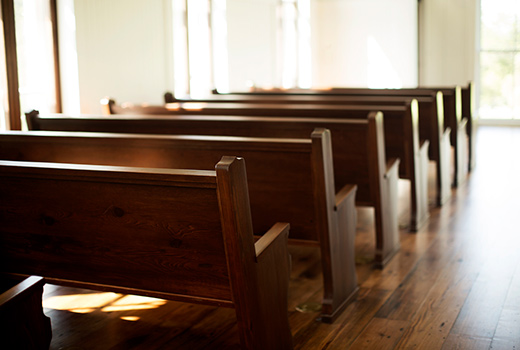Southern Baptists, from local churches to the national convention’s Executive Committee, seem to have been infatuated with numbers for many years. Now that our numbers are declining, what does it mean and how are we responding?
In 2014, a North American Mission Board task force comprised chiefly of pastors released its report regarding the decline of the Southern Baptist Convention. Current SBC president Steve Gaines has also appointed a group to study the continuing decline. The NAMB task force stated that “SBC baptisms reached a plateau in the 1950s, peaked in the 1970s, and have stayed fairly consistent since that time. However, the last six years show a downward trend in both church membership and baptisms.”
Since at least 2012, the Annual Church Profile has revealed a consistent picture: more churches added, fewer baptisms, and decreasing worship attendance.
Some SBC churches are growing, and others are dying. Most are either plateaued or declining. By virtually any measure, we are not growing anywhere near a rate comparable to the population increase. The SBC decline in numbers is not occurring in a vacuum, nor are we the only group of Christian churches losing more people than we are winning. According to Pew Research, “every major branch of Christianity has lost significant numbers — the biggest are the Catholics and mainline Protestants.”
Millennials (those in their 20s to early 30s) have not been reached and are not effectively being reached. Barna Research noted, “Over the last six months, over half of all millennials have not attended any church. Sixty percent have dropped completely out of church.”
Christianity, in terms of numbers, is declining in the United States. Some are saying we are entering or have entered a post-Christian era in American history. According to Barna’s State of the Church Report, “Biblical skepticism is on the rise, especially among millennials.” Today, an increasing number of people do not believe the Bible to be “totally accurate in all of the principles it teaches.” David Kinneman, president of Barna Research, stated, “The percentage of Americans who believe the Bible is just another book written by men is increasing.”
The decline of the Christian faith in America affects nearly all denominational and non-denominational churches. Is it time to lose the name Baptist? Hardly. In a 2015 article by Moran Jones for Christianity Today, the author pointed out that Americans favor Baptists and Catholics more than non-denominational congregations. A LifeWay Research phone survey of 1,000 people showed that about 50 percent viewed denomination names favorably, while the other 50 percent viewed them indifferently or negatively. The truth is that a significant number of people do not like church, period … until they know the truth.
Ron Sellers, president of Gray Matter Research, reported in 2013 that only a minority of the unchurched have negative perceptions about denominational names in general. He said, “Eight out of 10 unchurched adults do not feel a non-denominational name would make them more likely to consider visiting.” Sixty percent did not view a non-denominational church as being more open-minded.
The decline of the SBC is happening within the larger decline of Christianity in general. However, the name Baptist is not necessarily an obstacle to reaching people. For many unchurched, it may be positive.
As Albert Mohler, president of Southern Baptist Theological Seminary, has observed, the SBC is “in a new time, just in terms of a newly secular age with cultural headwinds in our face.”
Ed Stetzer, former head of LifeWay Research and now chair of Wheaton Graduate School’s evangelism and leadership program, said, “The fact is, we seem to have lost our passion for evangelism. Baptists love evangelism as long as somebody else is doing it.”
The environment we live in may be more challenging, but the Great Commission challenge from our Lord remains the same. The local church is the only answer for reaching and teaching the multitudes that are lost. When the church is strong, our impact will be greater.
Barna stated that 73 percent of Americans say they are Christians — a percentage certainly questioned by evangelicals. This 73 percent say religious faith is very important, but only 31 percent attend church more than once a month. Generally, only half (or fewer) of the members of a Southern Baptist church actually attend that church. For the church to be a change-agent in this culture, that percentage has to change.
The key is the local church. Apologist and pastor Voddie Baucham spoke at the G3 Conference last year, emphasizing the importance of the local church. He said, “If we don’t understand the magnitude of the local church, then what’s the difference between us and the Rotary Club? If all this is is entertainment, then why bother? God has a plan. It’s the local church. It is plan A, and there is no plan B.”
Regardless of the climate or culture, the call of redeemed people (the church) is to be faithful to Christ and obedient to His Word.
Numerically, the SBC is declining, and that is sad. Numbers are important because they represent people, but numbers are not of chief importance. It would be a sadder scenario if Southern Baptists became so enamored with numbers that we compromised essential biblical truths in order to have larger numbers.
The metric is not simply numbers. It is faithfulness to Jesus Christ.

